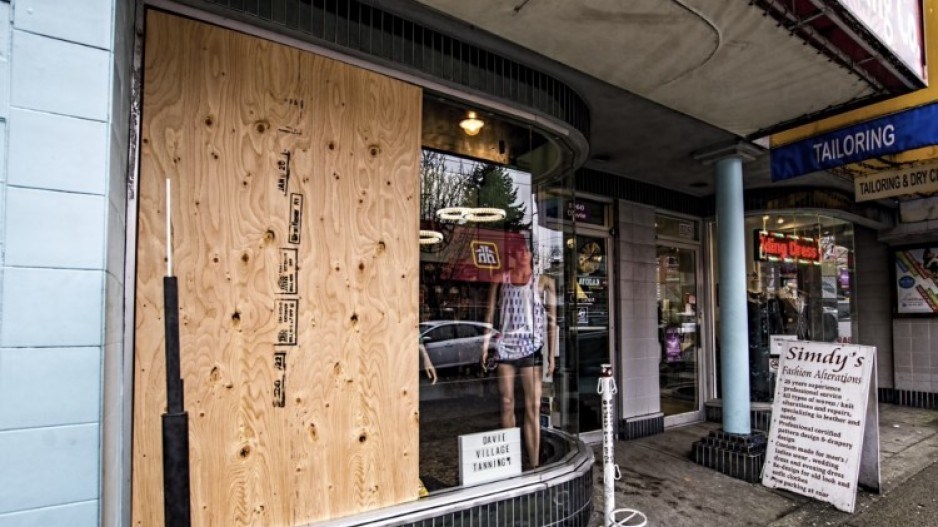Nearly half of all small businesses in Western Canada have been affected directly or indirectly by crime, according to a new survey by the Canadian Federation of Independent Business (CFIB).
A third – 32 per cent – report having been directly hit with property damage or theft.
The report – Crime and Safety in Western Canada – was released just two days after a coalition of B.C. businesses and organizations launched the Save Our Streets campaign to highlight the crime and social decay evident on the streets from Dawson Creek to Vancouver.
Members of the group include retailers London Drugs, Lululemon and Save-On Foods, as well as the Surrey Board of Trade and Metro Vancouver Crime Stoppers.
Statistics Canada confirms police-reported crime has been on the increase in Canada. Police-reported crime increased four per cent in 2022 – marking the second year in a row that crime stats rose. And in 2022, the violent crime severity index (CSI) was the highest since 2007.
Vandalism has become such a problem for businesses in B.C. that the provincial government on Sunday announced a new grant to help businesses pay for repairs caused by vandals.
Businesses in Western Canada are also increasingly concerned for the safety of their employees and customers.
“B.C. small businesses report they are struggling to manage property damage, theft, waste and litter, loitering, and public intoxication,” the CFIB says in a news release. “Many (86 per cent) are also worried about the safety of their customers and employees.
“Small businesses are already implementing measures to better protect their business, customers, and employees, including spending more money on security, adjusting operations, and providing additional safety training for staff. Some report having to pay more to attract and retain employees, further contributing to labour shortage challenges.”
The CFIB report was based on a survey of 2,809 small business owners in Western Canada from May 4 to May 25, 2023 -- 348 from B.C., 320 from Alberta, 90 from Saskatchewan, and 114 from Manitoba.
Concerns over crime is highest in Manitoba and B.C., the survey found. The survey found that 32 per cent of small businesses reported direct impacts from crime, including theft and property damage.
The CFIB is calling on governments to address the issues that have allowed crime to flourish, including the problem of recidivism.
“CFIB calls on all levels of government to prioritize community safety by addressing underlying societal issues, collaborating with stakeholders, improving reporting and transparency, enhancing supports for small business, and overhauling the current approach to handling repeat offenders.”
The CFIB concludes with five recommendations for government:
- address underlying issues contributing to crime and safety issues, including affordable housing, mental health and addictions;
- improve resources for small businesses including proactive funding for increased security, funding for crime related repairs, and guidance, prevention and response strategies for small business owners and their staff;
- strengthen collaboration between all levels of government, non-profits, community organizations, and small businesses to develop data-driven and evidence-based policies and programs aimed at addressing crime and safety;
- improve safety in commercial areas and public spaces, including improved outdoor lighting, regular cleaning and maintenance, and increased presence of police and security; and
- develop an improved approach to recidivism, including reevaluating bail rules and connecting repeat offenders to mental health and addictions services.


